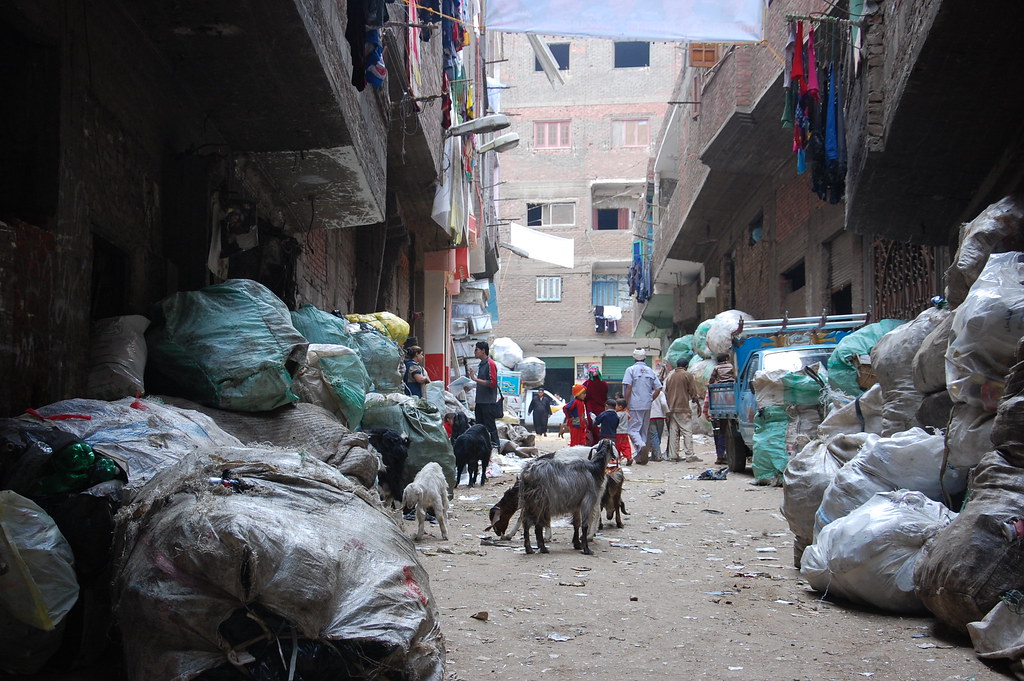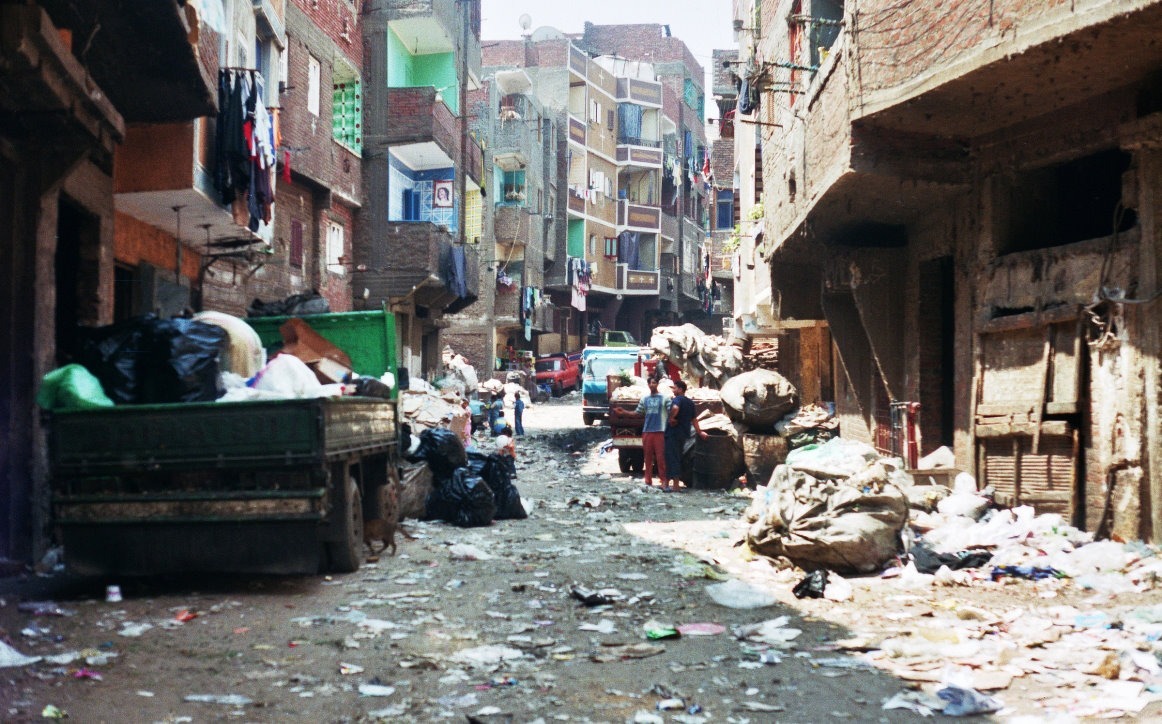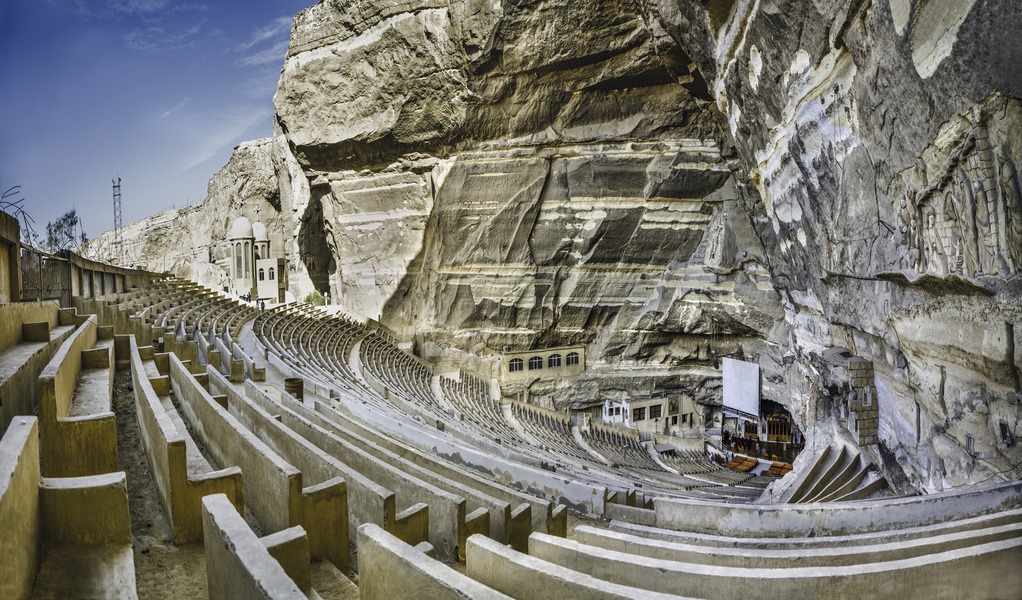The “Garbage People” – A Christian Community in Egypt

Egypt, known for its majestic pharaohs and ancient pyramids, is also home to a remarkable Christian community, the largest in the Middle East. Despite the challenges faced by this minority group, Christians make up around 10 percent of Egypt’s population and continue to inspire with their unwavering faith in Christ. Among these communities, one stands out: the “garbage people” residing in the heart of Cairo, where being a Christian often comes with stigma and mistreatment.
“The Garbage City” is a captivating testament to Christian devotion, where people live amidst overwhelming waste accumulation in Cairo, the bustling metropolis of the Middle East. Spanning a vast territory, this community consists of Coptic Orthodox Christians who have embraced a generational tradition of manual waste recycling. Their remarkable efficiency in this endeavor has garnered recognition from the United Nations, earning them the honorary title of “Friends of Planet Earth.” Operating without the aid of technology, these extraordinary individuals rely on manual waste collection, involving the active participation of the entire family, including young children.
UNEMPLOYED CHRISTIAN vs EMPLOYED MUSLIM
This Christian community’s living conditions are unhygienic, highly toxic, and infested with rats. The garbage trucks responsible for waste transportation frequently cause traffic congestion in the neighborhood’s streets, with piles of garbage bags scattered everywhere, emitting an unbearable stench. Merely passing through this area poses significant risks. Paradoxically, every day at 5 a.m., the Garbage City comes alive. Residents endure these adverse circumstances due to the scarcity of employment opportunities for Christians, finding sustenance through their work and the conditions they endure.
When asked why they haven’t abandoned their Christian faith in pursuit of material benefits by embracing Islam, they respond with resolute conviction, stating, “It is better to be with Christ amidst the garbage than to lead a life of material wealth without Him”.

A PARTNERSHIP WITH THE CITY
The Egyptian state has long remained disengaged from the lives of these industrious individuals, with no recognition of their work. However, recently, they have secured an official contract from the capital city, offering a potential avenue for modernizing the waste collection and recycling process.
Within this location stands a church with the largest seating capacity in the Middle East, accommodating 20,000 seats. This church holds a unique history, as constructing new churches in Egypt is prohibited, and even obtaining approval for church renovations is exceedingly challenging due to the state’s bias in favor of Muslims. The church in “The Garbage City” has an intriguing story.
Just three decades ago, the Christian community residing in the garbage city, currently numbering around 90,000 residents, did not have a single church. Though people identified themselves as Christians, their faith was merely nominal. The city suffered from a high crime rate and lacked churches, schools, electricity, running water, stores, or medical centers. It was described as a place with only garbage, people, and pigs. However, everything was about to change when a man named Samaan decided to give up his secular job and become an Orthodox Coptic priest in this garbage-infested city. Alongside his wife, they moved to the area with a vision to establish a place of worship.

A CHURCH INSIDE A CAVE
In 1986, numerous caves were discovered, previously used for stone extraction during the time of the pharaohs. These cave spaces had a large capacity, paving the way for the creation of a complex of churches. The largest one, carved inside a found cave, became the largest church in the Middle East. Regular church services are held here, attracting people from all corners of Cairo who come to worship together with the garbage city’s residents. This church, named after Saint Simon the Tanner, has become a tourist attraction.
The social atmosphere in the city has completely transformed. Despite continuing their garbage collection occupation, the people are now filled with love for God and seize every opportunity to proclaim His good news. A garbage collector shared, “I have learned from this church that I am not just a garbage collector but a bearer of good news. For instance, once I found a wallet full of money in the trash heap, and I decided to search for its owner in the city of Cairo. After finding the person, I returned the money and told him that in the past, when I did not know Christ, I would not have done this. But now, because I know Him and He has changed my life, I return these found funds to him.” Such real-life incidents abound in this marginalized city, a testament to God’s favor.
Today, after more than 30 years, the people continue to collect garbage, but their impact on the community, through the Church’s influence, has led to the establishment of schools, hospitals, relief organizations, vocational training centers, and multiple churches.
A SOCIETY TRANSFORMED BY CHRISTIAN PRINCIPLES
The Christian community residing in this garbage city is a shining example of how embracing Christian principles can bring about societal transformation. Father Samaan and his wife, by choosing to reside in an area disregarded by others, have brought about real change, acknowledged and celebrated internationally.
World Methodist Evangelism maintains contact with the Church of Egypt and hopes to build bridges of hope, inviting everyone to join in this endeavor.
Story by Rev. Cristian Istrate who works with World Methodist Evangelism as a Community Lead, which focuses on networking, collaboration, and new initiatives. Cristian lives in Sibiu, Romania with his wife and two children where he is the founder of Light from Light Methodist Church, president of Global Hope Romania, and a professor of practical theology in mission and evangelism. Alongside his wife, he served as a missionary in the Middle East. He is our primary contact with Egypt.